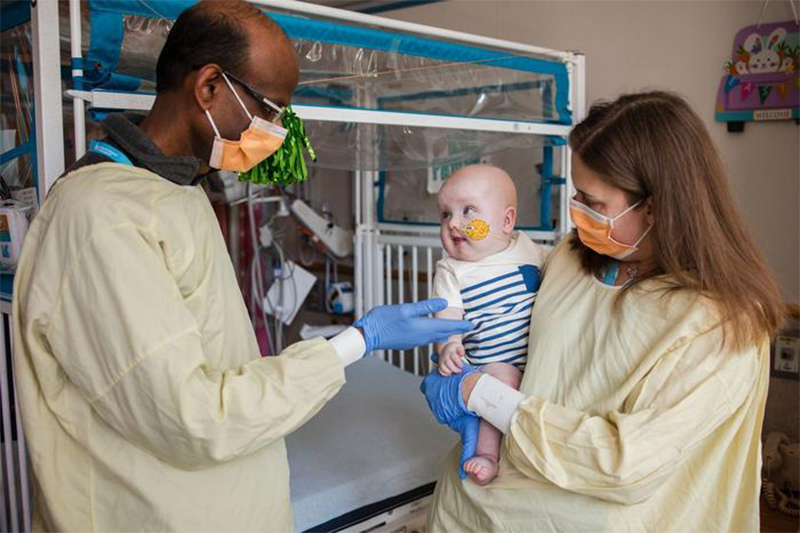Health Capsule
Baby With Rare Disease Gets Personalized Gene Therapy

Scientists have found ways to fix faulty genes for some common genetic disorders. These include sickle cell disease, various blood disorders, and a severe skin condition. But treating rarer genetic conditions has been more challenging. A new NIH-funded study used a personalized gene-editing approach in a baby born with a rare, often deadly disorder.
The baby had a disease called CPS1 deficiency. People with this disease don’t have the enzyme that removes harmful ammonia from the body. About half of babies with CPS1 deficiency die as infants. The research team had spent years creating personalized therapies for people with similar disorders. So they were ready when the newborn showed symptoms of CPS1 deficiency.
The team quickly crafted an experimental gene therapy. The baby received two treatments around the time he was six months old. A few weeks later, he needed less medication to keep ammonia levels in check. And his diet could include more protein. Protein intake can lead to ammonia buildup in kids with untreated CPS1 deficiency.
No serious side effects were seen. But follow-up will be needed to be sure the therapy remains safe and effective. With further study, this type of personalized gene therapy could help to treat a variety of disorders.
“Years and years of progress in gene editing and collaboration between researchers and clinicians made this moment possible,” says Dr. Rebecca Ahrens-Nicklas of the Children’s Hospital of Philadelphia, who helped lead this study.
NIH Office of Communications and Public Liaison
Health and Science Publications Branch
Building 31, Room 5B52
Bethesda, MD 20892-2094
Contact Us:
nihnewsinhealth@od.nih.gov
Phone: 301-451-8224
Share Our Materials: Reprint our articles and illustrations in your own publication. Our material is not copyrighted. Please acknowledge NIH News in Health as the source and send us a copy.
For more consumer health news and information, visit health.nih.gov.
For wellness toolkits, visit www.nih.gov/wellnesstoolkits.




